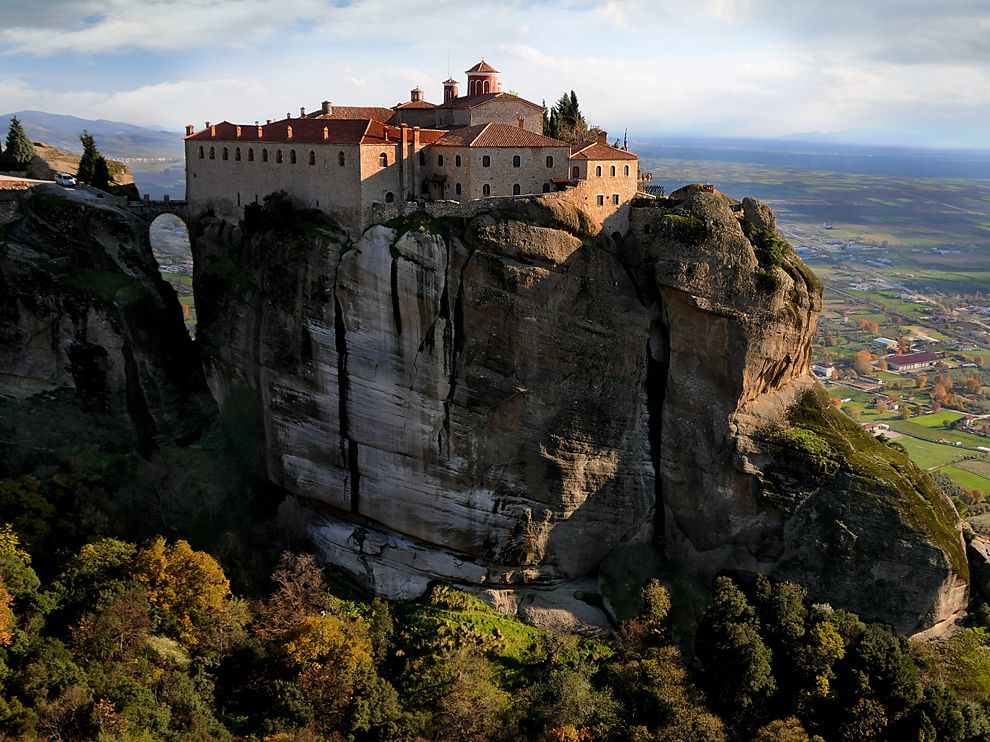
The Pew Research Center last year released a study titled: “Religious Belief and National Belonging in Central and Eastern Europe.” It highlights the growing importance that religion is playing in the national identity of Eastern and Central Europeans. Excitement about this topic is no doubt fueled by the continued smear campaign by Western media to demonize the countries of Eastern Europe. One country after another has refused to go along with the demographic and cultural replacement that has been planned for them by the globalist powers in the West and individuals such as George Soros. It raises the important question in our increasingly pluralistic societies of the West: how important is religion to a nation’s identity?
One of the interesting facets of the Pew study was a poll on how important a specific religious identity was for that particular nation. For the Orthodox nations numbers were highest:
- 78% of Serbians felt being Orthodox was important to being truly Serbian
- 76% of Greeks
- 57% of Russians
- 51% of Ukrainians
Tracking behind many of the Orthodox countries were the Catholic countries of the east.
- 64% of Poles felt being Catholic was important to being truly Polish
- 58% of Croatians
- 56% of Lithuanians
- 43% of Hungarians
Despite Hungary carrying the rear amongst eastern Catholic countries, its numbers are surprisingly high, as only 56% of Hungarians identify as Catholic as of 2015. There is a large Protestant minority in Hungary, along with a growing irreligious population found throughout Europe. To give a comparison, 87% of Poles identify as Catholic as of 2015. In the more enlightened Western European countries such as France and Germany, being generally Christian is important to being truly French or German at rates of 23% and 30%, respectively. Considering the browbeating Germans receive incessantly about how evil it is for them to ever attempt to define who is actually German, I found these numbers rather high.
To top it off and show what troglodytes Europeans of the east are, especially the Orthodox ones, the study provides polls on homosexuality and traditional gender norms too.
Homosexuality is seen as morally wrong in many Orthodox countries. For the adherents of the religion of Tolerance and Cultural Marxism, where homosexuality is one of the key vocations of their faith, these are astronomically heretical rates.
- 98% of Armenians view homosexuality as morally wrong
- 90% of Georgians
- 85% of Russians
- 69% of Serbians
- 51% of Greeks
Not sure what happened to the Greeks, but they are hanging onto a slim majority yet. To drive home how deeply bigoted the Russians are, the study notes that even amongst unaffiliated Russians, 79% say society should not accept homosexuality. Amongst Catholic countries of the east, the number of heretics are still unacceptably high:
- 72% of Lithuanians view homosexuality as wrong
- 53% of Hungarians
- 49% of Croatians
- 48% of Poles
No numbers from any Western European countries were provided for this particular measure, as that may have shown that there was still “wrong think” amongst some recalcitrant Westerners. The study continues on other topics, such as how favorably the various eastern countries view Russia in comparison to the U.S., and whether democracy is the best form of government; once again, their lack of faith in another central tenet is disturbing. Perhaps most damning of all, though, are two polls at the end discussing whether the Church should play a public role in the nation’s life and whether diverse society or homogeneous societies are better for a nation.
Numbers for saying that people are better off living in homogeneous societies (religion and ethnic identity were the two factors asked about) were actually highest amongst the Catholic countries, who usually lag behind the Orthodox. One reason for this may be the high number of Muslims and ethnic minorities in places like Russia, but also recent ethnic conflicts and subsequently devastating NATO interventions amongst Balkan countries. Some highlights:
- 67% of Czechs say homogeneous societies are better for people
- 66% of Lithuanians
- 57% of Poles
- 56% of Hungarians
- 46% of Greeks
- 36% of Latvians (huge and surprising difference, considering they’re neighbors with the Lithuanians).
- 34% of Russians
- 30% of Croatians
- 30% of Serbians
- 24% of Bosnians
Although the Pew Research Center, like NPR, might claim to be non-partisan, the bend is clear by what they choose to focus on, and how they choose to focus on it. Almost every one of these polls in this study is meant to stigmatize, if not pathologize, the views of the nations of Central and Eastern Europe, and their Christian inhabitants specifically. May God bless them in holding strong against the unnatural and immoral influences coming at ever-heightening levels from the West, and give hope to those of us in the West who yet cling to the ways of our ancestors. Next we will take a look at the United States and the different identities present here, and how they correlate with various American religious bodies.
| Tweet |
|
|
|




